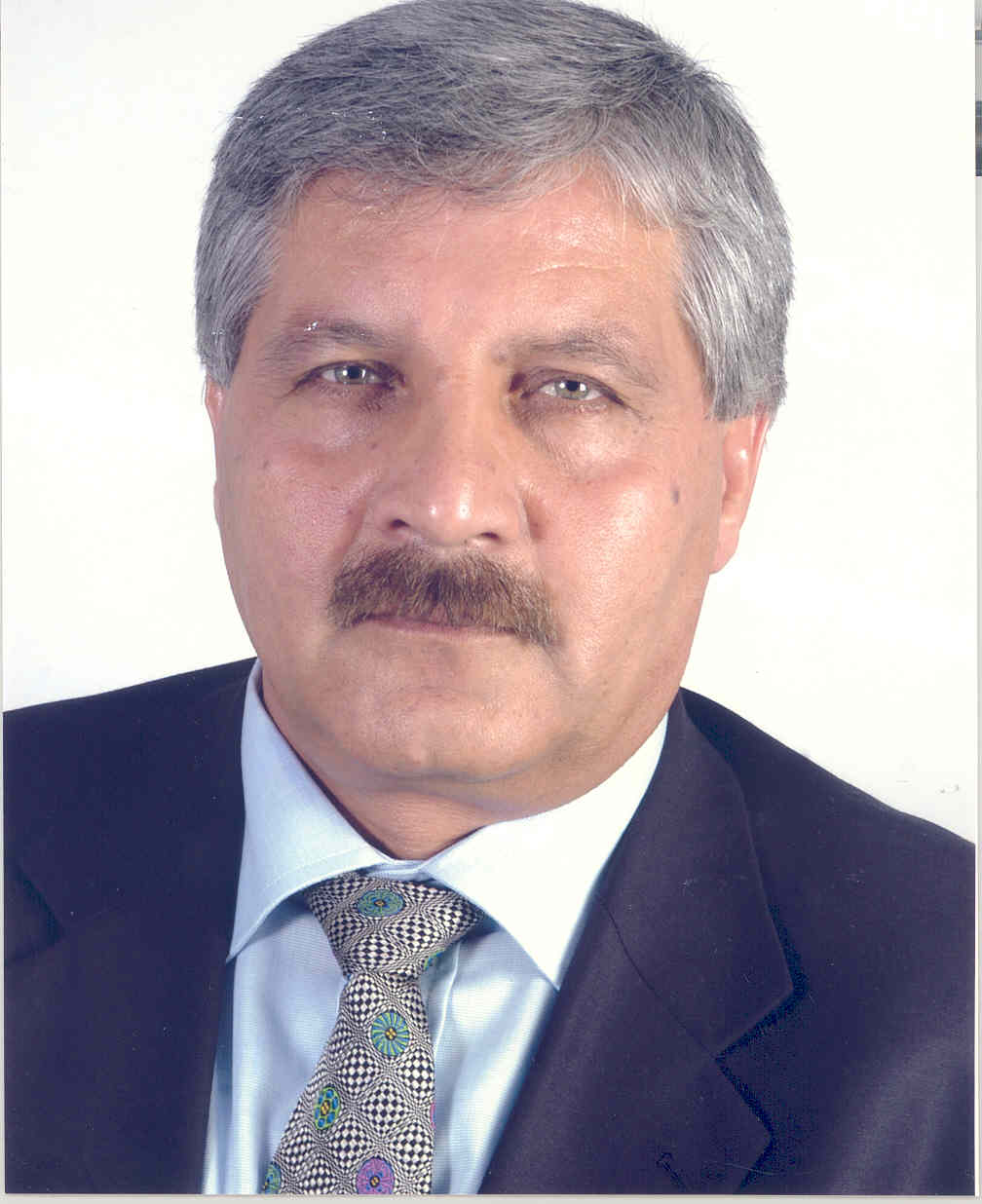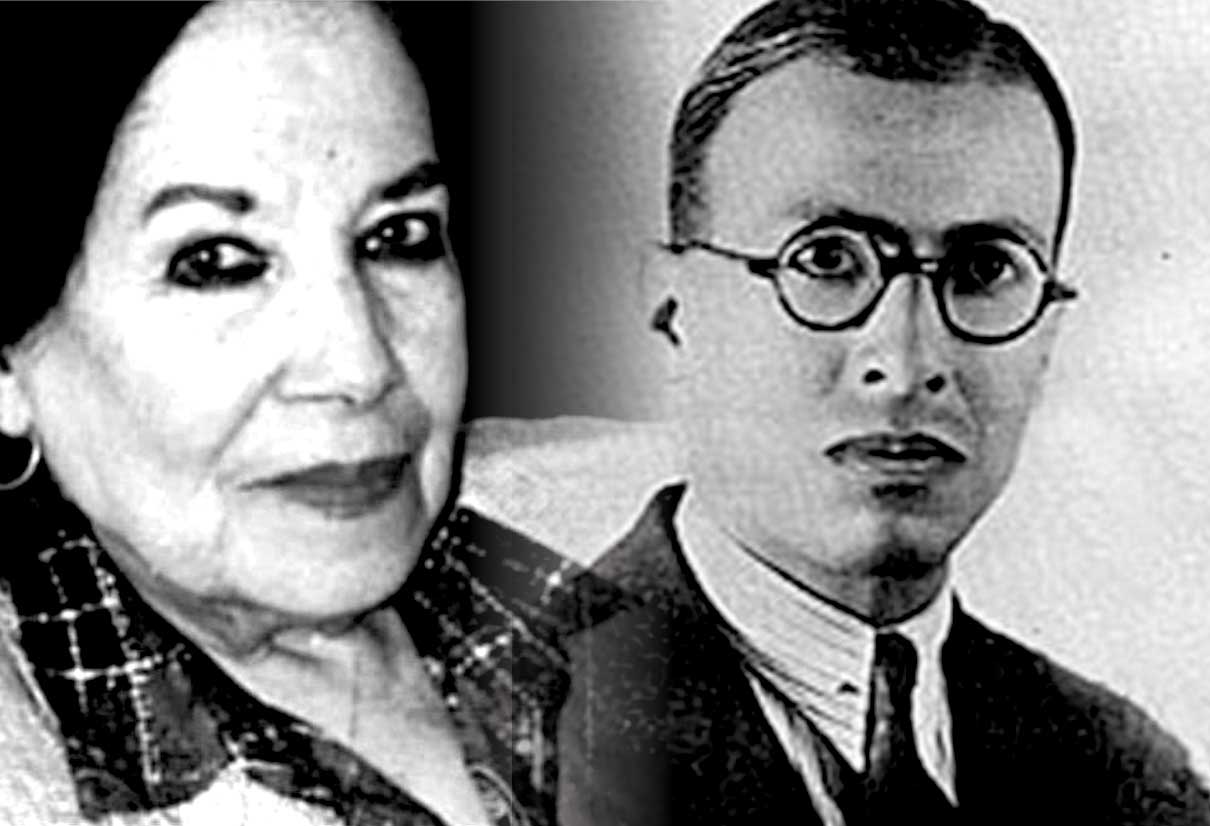The relationship between Fadwa Tuqan (1917–2003) and her older brother Ibrahim (1905–1941) was special. They were connected not only by familial bonds but also shared a love for poetry, friendship, and mutual respect for each other’s poetic talent.
While obtaining a degree in literature, Ibrahim lived in metropolitan Beirut, an environment that was much more open than his hometown Nablus. When at age thirteen his sister Fadwa was prevented from continuing her education, Ibrahim took it upon himself to further her education. He wrote letters of encouragement, gave her books to read, taught her the English language, corrected her errors, and introduced her to prominent Arab poets and the art of prosody and poetic composition. But he was not only a source of inspiration to Fadwa, he also encouraged, even implored her to publish her work.
Ibrahim’s greatness stems from his poetic power and spirituality as well as his tolerance towards diversity. On the one hand, he encouraged Fadwa to buy a record with songs by Maurice Chevalier (the French actor, cabaret singer, and entertainer), on the other, he invited her to read the Holy Qur’an. Ibrahim reflected the traditional culture to which he belonged and which he was not willing to relinquish, but at the same time he was open to modernism. Their background was the bourgeois class that was witnessing transformation and disintegration. When in 1936, a revolution erupted, initiated by Palestinian peasants, the Palestinian bourgeoisie had no choice but to also engage in the revolution and give up the political stance of accommodating and trying to cooperate with the British Mandate government, which it had adopted since the 1920s.
A Palestinian proverb says: “No two siblings are alike,” and this applies well to Ibrahim and Fadwa. Whereas they both were conscious, reflective, and articulate regarding the political and social developments of their time, Fadwa was long-suffering, patient, and meditative, while Ibrahim was sarcastic and ironic. Ibrahim was immersed in public concerns, while Fadwa was more introversive and restrained by social shackles. Ibrahim was in league with the public; Fadwa, with herself – at least in her early writings. Ibrahim’s poetry echoes the Palestinian national identity shaped by political reality, whereas Fadwa’s writings reveal an internal struggle and rebelliousness against her society. In other words, Ibrahim personified external form while Fadwa expressed her internal consciousness.
Ibrahim passed away before the political ambition for a Palestinian state was realized. Mourning the untimely death of her brother, and despite the prevailing social and political constraints, Fadwa was determined to master her skills and continued to write poetry, criticize the social forces, and encourage the creation of a better Palestinian society. Her work reflects various aspects of Palestinian life and conveys her own personal sentiments beginning with her early collections, including My Brother Ibrahim (1946) and Alone with the Days (1952). Tuqan studied English language and literature at Oxford University in the United Kingdom from 1962 to 1964, and later traveled across Europe.
The relationship between Ibrahim and Fadwa was symbolic. After the Nakba of 1948, the dominant powers collapsed and new forces – of which Fadwa was a part – emerged in their place. Her personal story merged into the public sense of loss and pain. In her poetry Fadwa voiced her suffering and the pain of the oppressed. Her voice was also the voice of large segments of her society that were injured by reality and restrained by their harsh living conditions. She managed to get out of her “female coop,” as she called it, and invited others to get out of the “coop” of lies, gossip, and hypocrisy, as well as of political, social, and economic marginalization. The poetic voice of Fadwa met head to head with the historical context, so that the suppressed woman became an internationally recognized poetess.
Fadwa remained a passionate and sensitive writer. She spent her life jobless and unmarried, living among the flowers of her poems that, like real flowers, both grew and prospered with little water and air.
Al-Mutawakel Taha was born in Qalqilya in 1958, and holds a master of arts degree. He served as president of the Palestinian Writers Union from 1987 to 1995, and as chairman of the general assembly of the Palestinian Higher Education Council from 1994 to 1998. He served as undersecretary of the Palestinian Ministry of Information from 1994 to 1998 and along with a number of Palestinian creators he founded the House of Poetry in Palestine in 1998. He was also elected secretary-general of the General Union of Palestinian Writers in 2005. He has published much of his poetry in Palestine and abroad, and a number of his writings have been translated into several languages.



